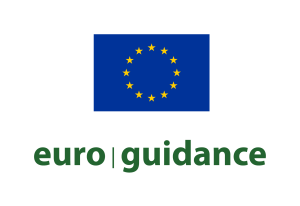Module 3: Role of guidance in mobility
EXPECTED LEARNING OUTCOME: You will know how to support clients before, during and after a learning mobility period and develop your own personal toolbox
1. Guidance practitioners' roles in mobility
1.3. After the student returns home
 The learning process does not end when the participant returns to their home country. The goals set prior to the stay abroad must be evaluated and it is crucial to gather and report the acquired knowledge and skills to decide in which way they should be credited. As a guidance counsellor, you can help optimise the learning outcome of the stay abroad through discussions and evaluations. The learning process that began in connection to the stay abroad needs to be facilitated through a frame and direction. How can the participant benefit from the new experiences, competencies and skills in a career and educational contexts?
The learning process does not end when the participant returns to their home country. The goals set prior to the stay abroad must be evaluated and it is crucial to gather and report the acquired knowledge and skills to decide in which way they should be credited. As a guidance counsellor, you can help optimise the learning outcome of the stay abroad through discussions and evaluations. The learning process that began in connection to the stay abroad needs to be facilitated through a frame and direction. How can the participant benefit from the new experiences, competencies and skills in a career and educational contexts?
- Recognition of formal competencies. Naturally, most people want to include what they achieved during their stay abroad in their CV and, in the vast majority of cases, studies and work abroad constitute a merit in itself. Many participants also think that these learning outcomes and qualifications describe themselves and do not apply for an evaluation of their competencies in their home country afterwards
- Start from the education plan. If a plan or goal was articulated before the stay abroad, it may work as the starting point for an evaluation. Evaluating the plan or goal is important for recognizing qualifications as part of a formal training, and for the participant's own confirmation and reflection of what has happened and what skills he or she has acquired. Anyone who has participated in an exchange program at a university can in most cases get credits for their study time abroad. However, if the student went abroad as a free mover (a student enrolled outside any regular or standard program) it is not always obvious how to credit the merits or qualifications. Good documentation of qualifications is essential here. If a student has participated in a school project that included exchange programs with other countries, the exchange program is usually an integrated part of the study course. For example, in vocational programs they may go abroad for an internship.
- Process the experience. This stage in the mobility guidance process is perhaps the most difficult, partly because the effects may be subtle or not immediately apparent, and partly because a processing or summary is often not requested.
- Non-formal learning and personal development. Since many of the competencies associated with personal development are usually informal and more general, they do not belong to any specific subject area. This means that schools or universities may not feel responsibility for evaluating this dimension of a stay abroad. Instead, formal learning connected to specific subject areas is usually in focus. Informal learning includes the challenges and the daily hassle that are often a large part of a stay abroad and that contribute to the development of the young individual. These skills can be important to include in a CV or talk about at a job interview, but they are skills that the student may need support to discover and put into words.
- Putting perspective on the experiences is about working with the thoughts that the participant has had during their stay abroad, which is part of the intercultural learning process. These may be issues and/or experiences that have remained unexplained or for which the participant himself has found an explanation. Therefore, it is a good idea to discuss the stay abroad with the participant after returning home, with these issues or experiences as a starting point, and to try to get a perspective on them together (both positive and negative). The starting point is broad questions such as "What do you think of Germany, now that you have been there for three months?", "Was there anything that surprised you?", "Which aspects of the work / studies differed the most from what you know from home?” and so on. These types of questions lead to areas that can be further discussed.
- Problematise and challenge generalising explanations. A guidance counsellor who has personal and in-depth knowledge of the country and the culture in which the participant has lived can of course use that knowledge in the discussion. In the vast majority of cases, however, it is the participant who is the "expert" - it is (s)he who has had a direct contact with the country. The role of the guidance counsellor is thus to problematise and challenge and try to find other explanatory models for what has happened. It is not about finding the "right" explanations, but just about initiating a reflective process
As a guidance practitioner, you have many ways of making the client engage in reflection processes. These techniques might be a start:
- Exceptions: Examples of episodes where things worked out or did not work out. What did the person do or say? What could have been the alternative? What was the significant element?
- Coping: Make the student explain their coping strategies
- Progress: When did things start to get better? And why?
- Scaling: How satisfied are you with your efforts (examples)? Why do you rate yourself like this?
The guidance process after the mobility period includes guidance on what to take on board, what steps to take next and how to use the new competences in the future.
Preserve the positive
In the same way that the participant needs to prepare mentally and culturally for a stay abroad, one needs to understand that it is a small adjustment to come home again. Upon returning home, the participant (consciously or unconsciously) is put under pressure by his or her surroundings to become the person he or she was before departure. Provided that the changes that have taken place are positive, support may be needed for the “new” personality and help to preserve the change. This can be done by supporting the participant to put the changes into words and help in drawing any educational and career conclusions from them.
After a transformative stay abroad, it might be tricky to create a "bridge" between experiences and skills. Many exchange students want to talk about what they have done but expressing these experiences in terms of skills or abilities has proved difficult. Here the ELD (Experience, Learn, Describe) competency list may be of help. The words marked with a globe are skills that most often are connected to a stay abroad. More information about the ELD method can be found here: eldkompetens.se
**
